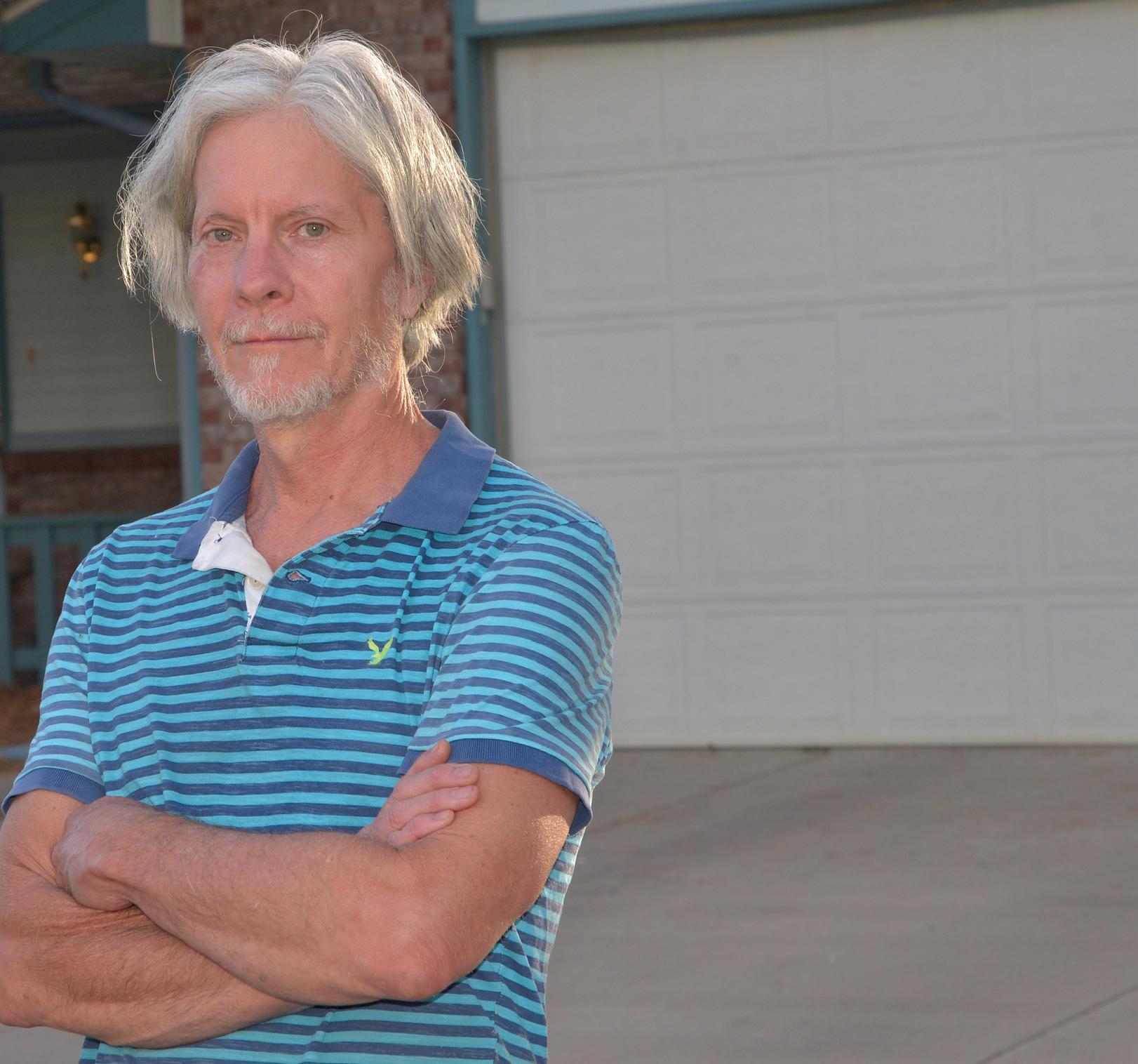
5 minute read
Growing A Pot Garden...Oops! Growing A Garden In Pots
Gardening in Pots
Containers to the Rescue! —By Dan Potts
Advertisement
After gardening virtually all of my life, and later teaching gardening classes through West High School’s Community Education Program, I have concluded that almost anyone can grow a garden.
The only real requirement is about six hours of direct sunlight for any location. It could be a small corner of your yard, a patio, or even an outside deck on the east side of a high-rise apartment complex. You could even grow a 25-pound watermelon eight stories up on a south-facing apartment deck simply by training the vines to grow where you want them.
Many renters either do not have access to garden space or the owner will not allow them to garden in the yard. However, almost all renters are allowed to grow potted plants, and folks can usually find places to put containers on a back patio or even in soil-less front yards. Thus, the trick is to grow more things in containers, regardless of whether one has access to a garden area on the ground.
There are almost limitless choices for containers. Over the years I have used everything from plastic pots to old racing tires — anything that can hold a soil mix. For a growing mix, I recommend using mostly real soil mixed with some perlite to help drainage, and compost to add more organic matter for improved fertility. Watering seems to be one of the biggest challenges for most. Many people simply over-water their plants, thereby stressing them. I recommend letting the plants tell you when to water by waiting for their leaves to droop. To avoid spoiling them, that usually means only watering once about every day or two. I prefer to water in the evening to allow plants to recover overnight.
Another technique to growing in smaller spaces is to grow vertically. Use a trellis to support plants such as tomatoes. Allow cucumbers to climb a wall, or even use handrails as opportunities to train them to increase productivity.
Growing in suspended pots allows increased exposure to sunlight for plants such as strawberries that naturally do better hanging down.
This year I plan to grow melons in black polyethylene pots and tomatoes in car tires filled with a mix and resting on top of soil in the garden. I also plan on growing snack peppers in a large ceramic pot on the patio for more convenient snacking. We are already eating lettuce and arugula in our salads that I started weeks ago in pots that were easily carried inside when outside temperatures dropped too low.
I’m certainly not talking about farming with polluting rototillers or using fancy irrigation systems. Having occasional fresh veggies or even pet plants to talk to every day is what I am talking about.
The Man Who Quit Money By Anastasia Hufham Hitch-hiking through Pennsylvania in 2000, Daniel “Suelo” Shellabarger had $30 left in his pocket,which he left in a phone booth. That decisive day over two decades ago led to 15 years of living without money for the former Moab, Utah few belongings scattered around him in the mud, he felt total despair. Moments later, Suelo looked $local, who returned to monetary society in ahead towards the trail 2015 to care for his parents. He now lives in and saw a strap jutting
Colorado with his mother, pepper-haired out of the mud, which drew an and grizzled as if he were still living off the abandoned backpack out of the land. muck.
Suelo made a home for himself near Suelo looks back on those years
Moab during the 1990s before he gave up with fondness and appreciation, money. Sheltering in and out of caves, he though he still grapples with foraged for wild edibles throughout the the culture shock of living with desert and learned what plants were safe money. “It was a complete and to forage and consume in different parts total change. I was always able of the continent. Hitch-hiking became his to go anywhere I wanted and preferred method of transportation. live outdoors, and now I can’t do
In conquering his pride and allowing that,” he said. But by releasing himself to be helped, whether that was his identity as “The Man Who accepting a ride or a meal, Suelo realized Quit Money,” Suelo is learning the truth underlying his interactions with to be appreciative of the current others: “By receiving things, I’m giving a moment. service, and by giving things I’m receiving “I was becoming attached to a service also. We’re in a culture where we being non-attached — attached to think that everybody has to be the giver. moneylessness,” Suelo reflected. If you’re the receiver, you’re freeloading or you’re a charity case,” Suelo continued. “That’s condescension, which doesn’t allow for equal reciprocation.” There were times during those 15 years without currency that Suelo questioned, or even regretted, his moneyless lifestyle. One afternoon in Alaska, sudden rain caused his frayed backpack to disintegrate. With his “That was becoming my identity.” That identity quickly gained publicity worldwide, as profiles of Suelo were published in The Huffington Post, The Denver Post, The Guardian, and more. He gave a TED Talk in Grand Junction in 2018, which has amassed 13,000 views on YouTube. Penguin asked PHOTOS BY MURICE D. MILLER

It was a complete and total change. I was always able to go anywhere I wanted and live outdoors.”

him to write an autobiography, but Suelo said he would only agree if the book was free. The publisher then approached Mark Sundeen, who wrote Suelo’s biography entitled The Man Who Quit Money, though Suelo refused royalties and requested that some copies be given away.
“Commerce is destroying our world. I don’t want to participate in that; I don’t want to have to put myself aside to make money,” he explained. “Why can’t I just do things simply because I want to do them — just from my heart? Why do I have to do everything only to gain a salary or reward?”
Beyond capitalistic theory and the fate of a consumerist society, Suelo has found that the only guarantee for a fulfilled life is authenticity. “I don’t really know anything — nobody really does — except just being ourselves, which sounds almost trite,” he laughed. “If in all of my interactions, I can just do things for the sake of doing them rather than for the sake of getting something — without ulterior motive — then things pan out.”
From those itching to leave their remaining savings in a phone booth to the majority who are not ready to give up money just yet, everyone can strive towards a more honest existence. “We can all re-wild ourselves,” as Suelo would say. And perhaps enjoy a more authentic life as a result.











